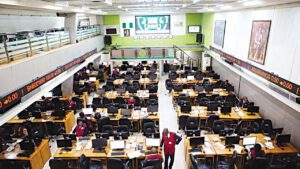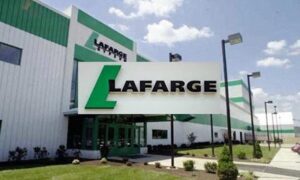
Dangote Sugar, Nascon, Unilever, three others report 30% growth in revenue to N1.059trn
Nigeria’s leading consumer goods companies earned a whopping sum of N1.059 trillion as revenue in the last nine months of the year 2022, outperforming their earnings in the corresponding period of 2021 of N811.887 billion.
According to the information contained in the nine months’ financial statements of these companies. The companies’ revenues rose by 30.39 per cent compared to the same period in 2022.
The revenue growth recorded by the companies is remarkable, considering economic disruptions in the global economy occasioned by the ripple effect on energy, power, and food cost, amongst others, caused by the Russia-Ukraine face-off, the inflationary pressure on the household wallets. weakening purchasing power, legacy structural constraints, lingering insecurity, and crippling trade facilitation issue.
The growth in revenue reported by these companies was driven by higher product prices and demand from consumers during the period under review.
This suggests volumes did not move much as inflation forced most of the companies to adopt negative sales tactics such as shrinkflation to drive up sales.
This also explains why the latest data from the Bureau of Statistics shows the food and beverage sector contracted in the third quarter of the year, the first time since the Covid quarter of 2020.
On a nine months basis, GDP for the food and beverage sector is up by 3.5 per cent in line with the revenue growth reported by some of the quoted companies captured in this article.
The outlook for the sector appears grim going by the latest GDP data released by the NBS.
Our metrics are simply the revenue reported in the first nine months of this year based on calendar months. For the sake of emphasis, we analyzed six companies which include Dangote Sugar Plc, Nascon Plc Unilever Plc, Nestle Plc, Cadbury Nigeria Plc, and BUA Foods Plc.
This is a list of the five consumer goods firms quoted on the floor of the Nigerian Exchange Limited ranked by revenues based on published financial statements and also ranked by percentage growth.
Despite financial and operational headwinds in the third quarter of the year, Unilever Nigeria Plc reported an 8.76 per cent growth in revenue for the first nine months of the year 2022 to N63.869 billion as against N58.723 billion in 2021.
The company closed the trading day on Tuesday, November 29, 2022, at N11.00 per share on the Nigerian Stock Exchange (NGX). Unilever began the year with a share price of N14.50 but has since lost 24.1 per cent off the price valuation.
BUA Foods Plc posted revenue of N289.819 billion for the period under review from N241.078 billion in 2021, accounting for an increase of 20.22 per cent despite the rising cost of sales occasioned by inflation and the Russia-Ukraine war.
BUA closed its trading day at N63.40 per share on the NGX. BUA Foods closed its IPO day on January 5, 2022, with a share price of N44.00 and has since gained 44.1 per cent on that price valuation.
Nestle Nigeria Plc also reported an increase of 27.48 per cent in revenue during the nine months period as it remained resilient in the operational environment amid volatility in the economy. Nestle reported revenue of N333.472 billion during the period as against N261.591 billion representing a growth of 27.48 per cent.
Nestle closed the trading day at N963.90 per share on the Nigerian Stock Exchange (NGX). Nestle began the year with a share price of N1,556.50 but has since lost 38.1 per cent off that price valuation.
Cadbury Nigeria Plc leveraged high demands on consumer goods to gain a 41.57 per cent increase in revenue during the review period. The company recorded a revenue of N42.540 billion in the nine months of the year 2022 from N30.047 billion in 2021, accounting for an increase of 41.57 per cent.
Cadbury closed its last trading day on Tuesday, November 29, 2022, at N11.20 per share on the NGX recording a 0.4 per cent gain over its previous closing price of N11.15. Cadbury began the year with a share price of N8.80 and has since gained 27.3 per cent on that price valuation.
Dangote Sugar Plc sustained a positive trajectory during the third quarter of the year ended September 30, 2022, with 47.47 per cent growth in revenue. The company reported a revenue of N288.321 billion in its nine months of 2022 revenue from N195.500 billion a year ago, taking advantage of the rise in sugar prices due to operational headwinds in the third quarter of the year.
Dangote Sugar closed trading at N16.25 per share on the Nigerian Stock Exchange (NGX). Dangote Sugar Refinery began the year with a share price of N17.40 but has since lost 6.61 per cent off that price valuation.
Nascon Plc posted revenue of N40.605 billion for the nine months ended September 30, 2022, from N24.948 billion in 2021, accounting for an increase of 62.76 per cent despite the rising cost of sales economic headwinds occasioned by inflationary pressure.
Nascon closed the trading day at N10.70 per share on the Nigerian Stock Exchange (NGX). National Salt began the year with a share price of N13.20 but has since lost 18.9 per cent off that price valuation.
Need by the government to address the contraction of the manufacturing sector: whilst the trend of impressive revenues and bottom lines across the consumer goods sector has been driven by the rising cost of prices of commodities, the Centre for the Promotion of Private Enterprise (CPPE) has called for an emergency response by the government to address the contraction of manufacturing sector in the Q3 2022 Gross Domestic Product (GDP) report released by the National Bureau of Statistics (NBS).
Chief Executive Officer, Dr.Muda Yusuf, who stated this while reacting to the GDP report said the striking feature of the GDP Q3 report was the contraction of the manufacturing sector which shrunk by 1.91 per cent
He noted that the development was a reflection of a major setback for the Nigerian manufacturing sector which calls for an emergency response by the government.
“This is the first quarterly contraction of the manufacturing sector since 2020 when the economy slipped into recession. Of greater concern was the slump in the food and beverage sector which contracted by 4.05 per cent. This is the first contraction of the sector since the recession of the second quarter of 2020.
“The food and beverage sector is the flagship of the Nigerian manufacturing sector. for several decades, it was the toast of investors in the stock market. The sector contributed N2.2 trillion to GDP in the third quarter of 2022,” he said.
Yusuf explained that the plunge in the manufacturing sector performance has profound implications for food inflation, food security, and employment adding that the food processing sector has the biggest impact on jobs because of the strong backward integration content and high multiplier effect in the agriculture value chain.



